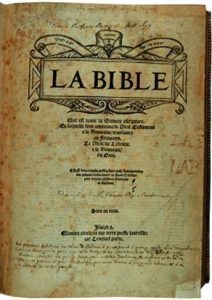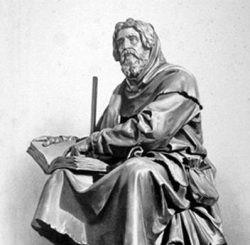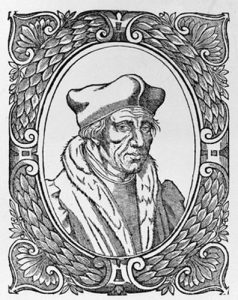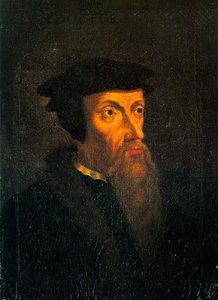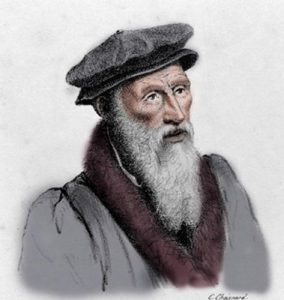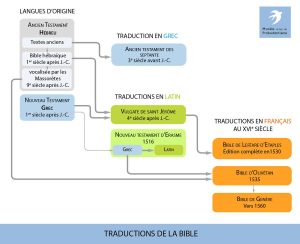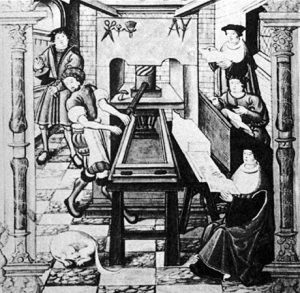Translation of the Bible into French
Pierre Robert, also known as Olivétan, was born in Noyon around 1506 and was Calvin’s cousin. He studied in Orleans, and went to Strasbourg to study Hebrew with Bucer. He then dedicated himself to teaching.
In 1532, at the Chanforan synod (Vaudois valley of the Piedmont region), the Waldensians, under Guillaume Farel’s influence, decided to adhere to the Reformation. They also decided to publish a Bible in French. Farel gave Olivétan the responsibility of the translation. It took him two years to accomplish the task. This was the first time the original texts in Hebrew and Greek had been translated into French. [glossry_exclude]Works of such scholars as Lefèvre d’Étaples were of great help to Olivétan. His Bible was printed in Neufchatel in 1535 and the introduction was written by Calvin, at the time only 25 years old.
The apocryphal books were printed in this Bible but a note specified that “they were considered as legitimate neither by the Hebrews nor by the Church as a whole” (qu’ils ne sont point reçus ni tenus comme légitimes tant des hébreux que de toute l’Église).

